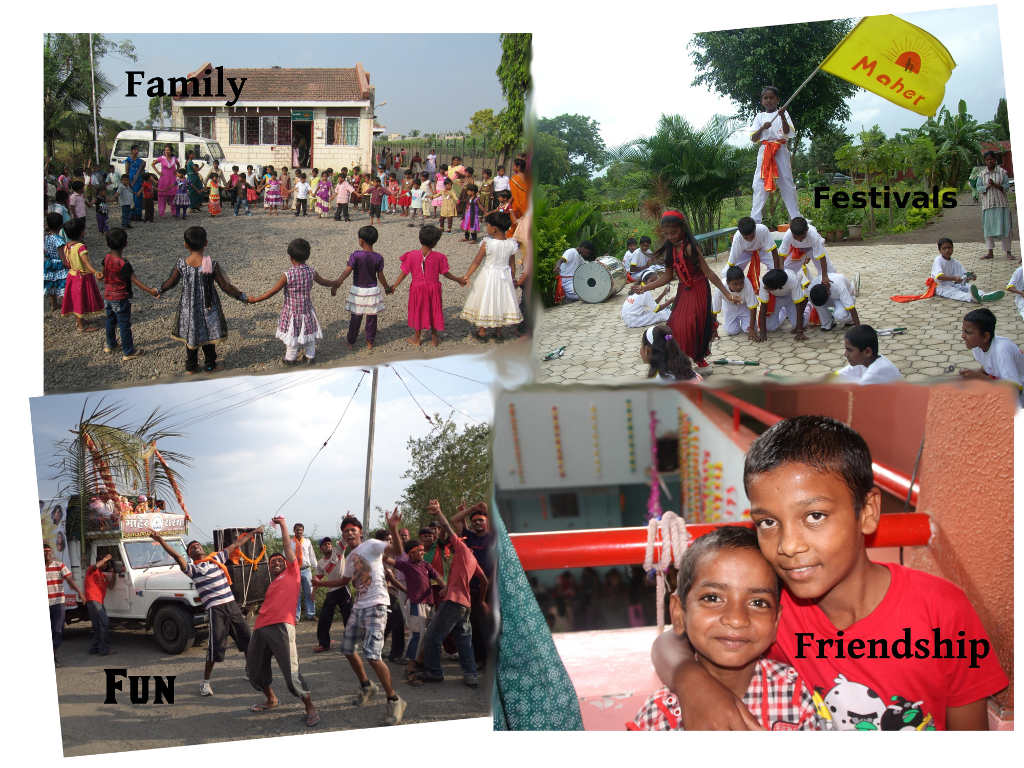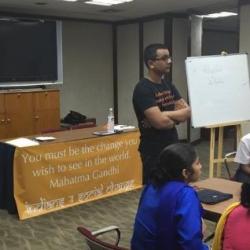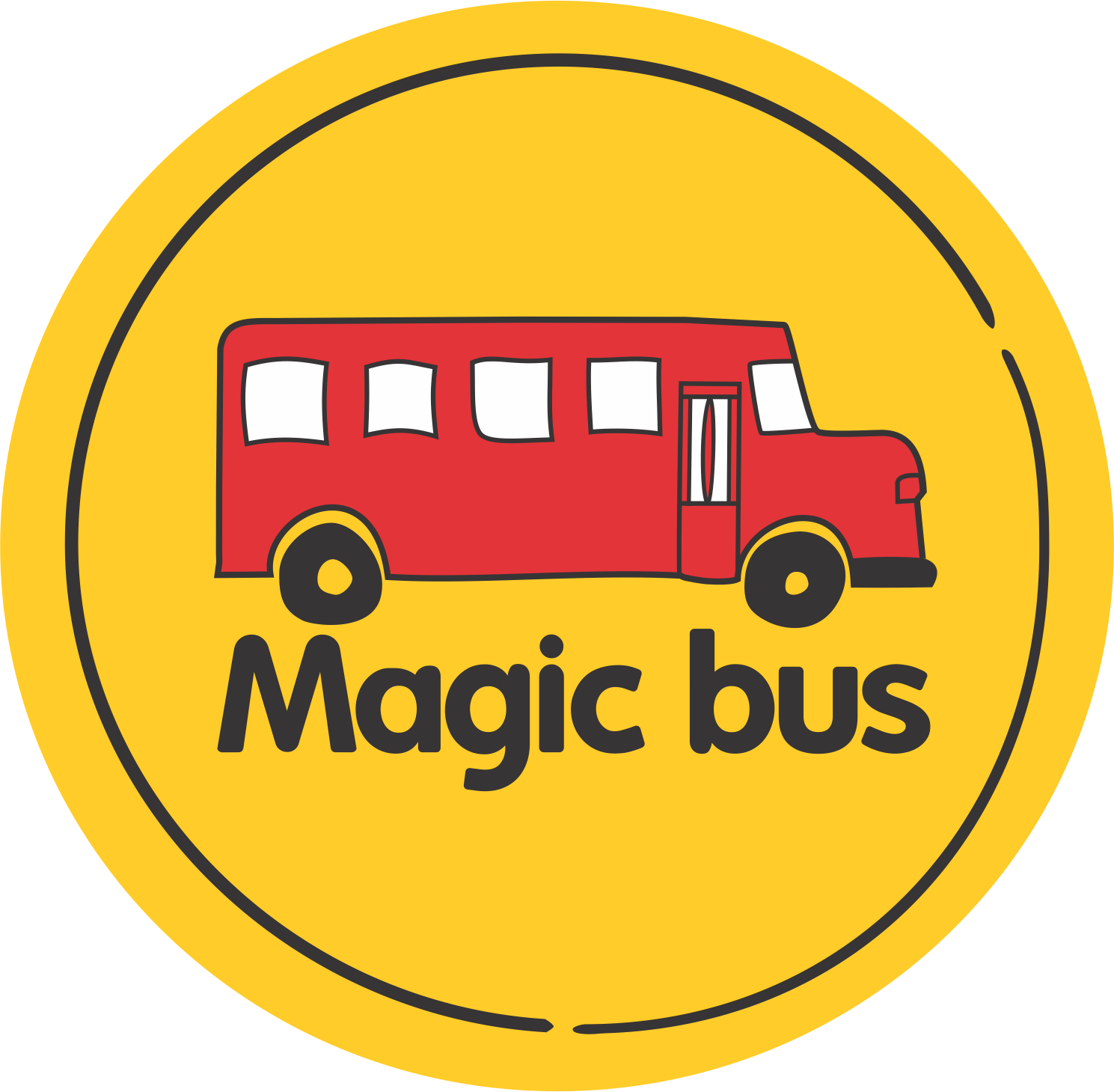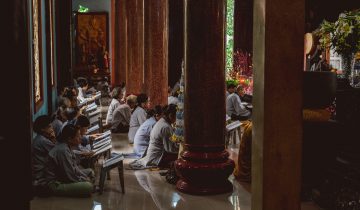Social Change Partner: Maher

In a few short sentences, what does your non-profit do?
Maher (in the Marathi language) means “Mother’s Home”: a haven of hope, belonging and understanding. Our mission is to help destitute women, children, and men from all over India receive their right to a higher quality of life, irrespective of gender, caste, creed or religion. Maher was established in 1997. The organization is wholly secular and maintains an interfaith culture respecting all religions. Maher has its centers in various districts in Maharashtra, and also in Jharkhand and Kerala.
Maher currently has 23 projects covering nearly 850 children, 300 women including 112 mentally disturbed women, and 41 men. Some of these projects are exclusively dedicated to women, some exclusively to children and others cater to the needs of general population.
What need do you fulfill and why is your organization unique?
Maher’s work is engendered by direct involvement with the community. The organization was founded to provide a place of safety and support for women facing problems of family violence, unwed pregnancies, widowhood, dowry payment, and the list goes on. Prior to Maher, there was nowhere for these women to seek help; the police were often dismissive if not outright violent, and government institutions for such crises are cold and impersonal. Maher provided a home and hope. With the women came the children, so Maher expanded to welcome them. In India government orphanages only allow the children to stay until they are 18-years-old, at which time they are forced to leave. Maher defies this edict; becoming a family for life, helping young adults either through higher schooling or finding work, and helping them transition to independence. Rather than a large institution, Maher has created an extensive network of small homes, spreading across villages. This structure encourages familial relationships for the children and allows Maher’s presence to extend. Many of the women who came were deeply damaged by the trauma they had experienced, or mentally ill beyond the abilities of care available in a standard home. So Maher expanded again, creating a space for these women and providing access to psychologists, doctors, medicine, and healing. The years progressed, and Maher opened a home for elderly and destitute women, and one for men. In addition to helping the victims of abuse and poverty, Maher strives to address the problems that lead to such abuse at a grass-roots level. Community outreach programs such as kindergartens, micro-credit loan self-help groups, village libraries, awareness programming, and much more affect the lives of thousands. Maher is successful because it operates from a foundation of love, not service, working in direct partnership with the people who are most vulnerable in our communities. Seventeen years in the field has honed Maher’s approach to meeting the needs of vulnerable communities in concise and effective ways.
Beyond working to meet the unmet needs of the community, Maher is unique in its running practices as well. Maher is an interfaith community. In a country split by gender, religion, color, and caste, Maher stands as a working model of a society that rejects such divisions. All religions are welcomed and respected. Maher has never and will never pay a bribe. This has often led to long and frustrating delays on buildings permits, registrations, and the like, but Maher stands firm. Additionally, Maher is run predominantly by a model of women healing women. Both at the administrative executive level, and in the houses themselves, women hold positions of management. Many of the social workers and housemothers currently employed by Maher were women who once came seeking help. Now they are able to extend that help to others. Maher’s office and board of directors is composed primarily of women. Not only unusual in India, such a powerful presence of women is unusual universally, and inspires the young women of Maher by example.
What do you think was the happiest moment of your organization?
There are so many! When we are able to reunite women and children with their families and they can go home. When children excel; like the two Maher girls representing India in the Slum Soccer Homeless World Cup in Chile right now. Or seeing children who were once begging on the street grow up to work in major companies. Or watching a woman who couldn’t even hold her head up when she first came to Maher now stand on a stage and deliver the testimony of her life. Our happy moments go on and on.
What was/is the largest obstacle your organization faced/faces?
There have been many of these as well. Early on Sr. Lucy struggled greatly with language and cultural barriers, being from Kerala and now coming to Vadu. It took nearly a decade for the local villages to fully embrace Maher. The distance from the city was also a challenge; they were so rural there weren’t even roads to the villages where they worked. Throughout Maher’s existence there have been challenges with people who do not understand Maher’ interfaith spirituality, and denounce Maher and Sr. Lucy for “converting” the children to Christianity- all accusations of which are demonstrably false. There is also the continual struggle of financing. In its earliest days the residents of Maher had to take turns eating because they only had two plates. Support has grown for the projects over the years, but so too has the work expanded. Raising the funds for Maher’s ongoing running expenses, in addition to new and necessary projects, is a constant battle.
What are the future plans for your organization?
The energy and love of the leadership and staff knows no bounds; the continued expansion of Maher is limited only by the concurrent growth of awareness and support from the community, both in India and abroad. Current projects include building a permanent home for destitute, mentally ill, elderly men; extending a new branch of Maher into Calcutta, and constructing a home in Ratnagiri for women and children affected by HIV. Maher also hopes to build 8 new homes for children, 5 homes for the mentally ill, 4 homes for the elderly, a short-stay home for women, 2 new staff quarters and new office space. The need is great, but the success of the last 17 years is a promise of great things to come.
How can our readers help you further your mission?
There are many ways to support Maher. First is simply through donation: the majority of Maher’s funding comes from small, individual donors. 500 (~ 8€) will support all a child’s expenses for a week;2000 (~ 30€) for a month. Or donate a sum of money for a specific purpose for the corpus fund. Collect and donate useful materials such as educational items, household items and so forth. Spread awareness of Maher to your family, friends, and workplace. Explore the products that Maher creates, and organize a sale to help the women earn a stable income. Volunteer your services: can you play football? Dance? Are you a teacher or a doctor? Do you know how to build a kite? Programming that enriches the lives of the children is always welcome. Or just come for a visit to experience for yourself the love and joy alive at this place.




